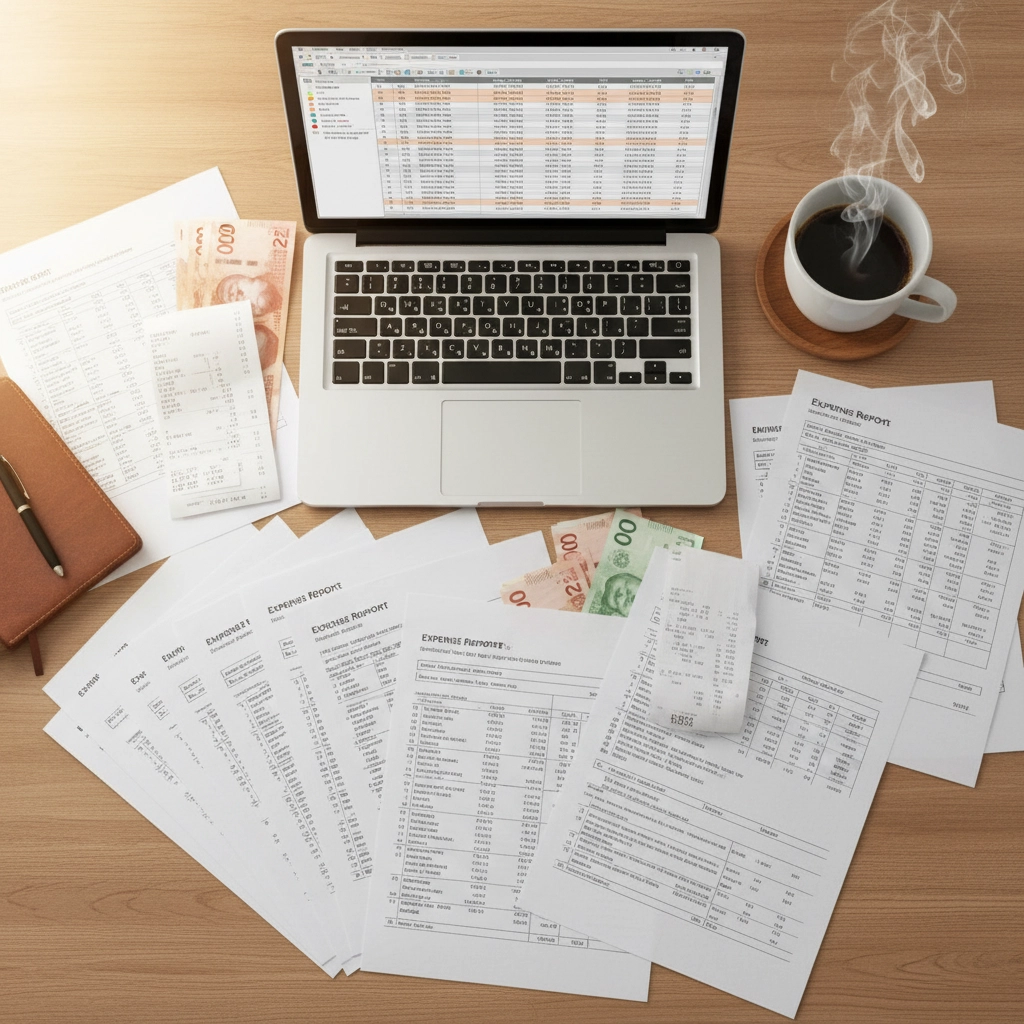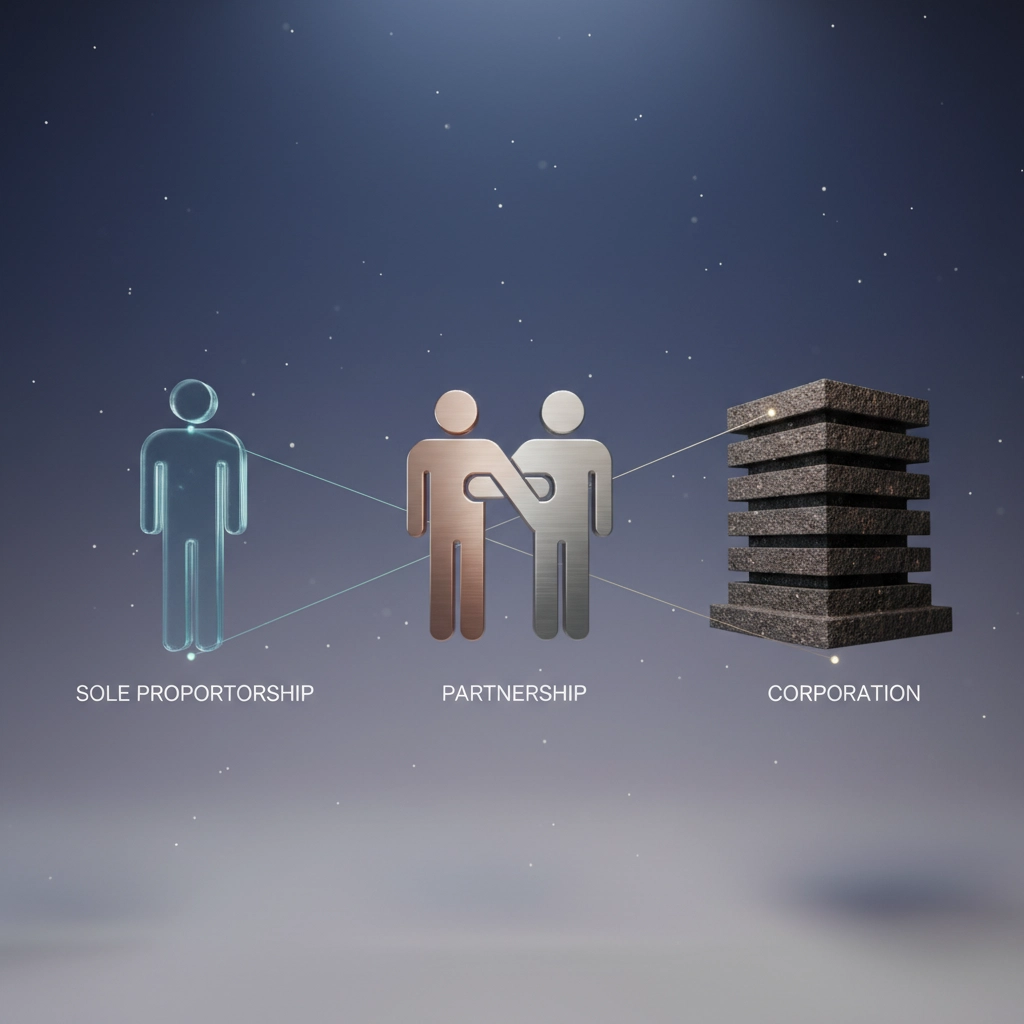Simplify your financial management – let us organize your books
How to Survive Tax Season in 5 Minutes (Quick Prep Guide for Small Business Owners)

Tax season in Canada doesn’t have to feel like you’re being chased by a pack of angry wolves. I know, I know – you’d rather be doing literally anything else than thinking about taxes. But here’s the thing: spending just five minutes getting organized now can save you hours of panic later.
Let’s be honest – most of us small business owners treat tax prep like that gym membership we bought in January. We know we should deal with it, but somehow Netflix always seems more appealing. The good news? You don’t need to become a tax expert overnight. You just need a solid game plan.
Know Your Canadian Tax Deadlines (They’re Different From Our Neighbors Down South)
First things first – let’s get those dates locked in your calendar. Unlike our American friends who seem to live and die by April 15th, we Canadians have our own timeline to follow.
Personal Tax Returns (T1): April 30th is your magic date. Miss it, and the Canada Revenue Agency starts charging interest faster than you can say “double-double.”
Self-Employed Returns: Here’s where it gets interesting. If you’re self-employed, you get until June 15th to file – but (and this is a big but) you still need to pay any taxes owed by April 30th. Think of it as getting extra time to do the paperwork, not extra time to pay up.
Corporate Returns (T2): You’ve got six months after your fiscal year-end. So if your fiscal year ends December 31st, you’re looking at June 30th for filing.
GST/HST Returns: This depends on how often you file. Monthly filers have one month plus 15 days, quarterly filers get three months plus one month, and annual filers have three months plus one month after their fiscal year-end.
Gather Your Documents Like You’re Preparing for the Apocalypse
I’m not being dramatic here – well, maybe a little. But seriously, having all your documents in one place is half the battle won. You’ll need everything from bank statements to that crumpled receipt you found in your winter coat pocket from last March.
Essential Documents You’ll Need:
- All business bank statements and credit card statements
- Receipts for business expenses (yes, even that $4 coffee you bought during a client meeting)
- Invoices and sales records
- Payroll records and T4 slips if you have employees
- T5s for any investment income
- Previous year’s tax returns (trust me, you’ll reference these more than you think)
- Business registration documents
- Any professional fees receipts
Pro tip: If you’re still shoving receipts into a shoebox, we need to have a serious conversation. There are apps like Receipt Bank or even just your phone’s camera that can digitize everything. Your future self will thank you.
Understand Your Business Structure (It Actually Matters)
Not all businesses are created equal in the eyes of the CRA. Your business structure determines which forms you’ll file and how you’ll be taxed. Let’s break this down:
Sole Proprietorship: You’re flying solo, and your business income gets reported on your personal T1 return using Form T2125. Simple, but you’re personally liable for everything.
Partnership: You and your partner(s) file a T5013 partnership return, and each partner reports their share on their personal returns. It’s like a group project, but with more paperwork.
Corporation: You’re in the big leagues now. Your corporation files its own T2 return, and you personally file a T1 for any salary or dividends you take out.
Knowing which bucket you fall into saves you from filing the wrong forms – something the CRA finds about as amusing as a root canal.

Separate Business and Personal Expenses (No, Really, Do This)
I can’t stress this enough – mixing personal and business expenses is like mixing stripes with polka dots. Technically possible, but it’s going to cause you problems.
The CRA wants to see clear lines between what’s a legitimate business expense and what’s just life happening. That means:
Definitely Business Expenses:
- Office supplies and equipment
- Professional development and training
- Business meals (50% deductible in most cases)
- Travel for business purposes
- Professional fees (legal, accounting, consulting)
- Business insurance premiums
Definitely Not Business Expenses:
- Your morning Tim Hortons run (unless you’re meeting a client)
- Personal cell phone bills (unless you use it exclusively for business)
- That vacation to Mexico you took (even if you checked email twice)
The Gray Areas:
- Home office expenses (legitimate if you have a dedicated workspace)
- Vehicle expenses (track business vs. personal use)
- Meals during business travel (usually 100% deductible)
Keep detailed records and when in doubt, ask a professional. The money you spend on good advice is way less than what you’d pay in penalties and interest.
Track Your GST/HST Properly
If you’re registered for GST/HST (and you need to be if your revenue exceeds $30,000), this becomes another layer of fun. You need to track the GST/HST you’ve collected from customers and the GST/HST you’ve paid on business expenses.
Input Tax Credits (ITCs) are your friend here – these are the GST/HST amounts you can claim back on business purchases. Keep those receipts that show GST/HST paid, because they’re literally worth money back to you.

Consider Quarterly Tax Installments
Here’s something that catches a lot of small business owners off guard: if you owe more than $3,000 in taxes (including both income tax and CPP contributions) for the current year or either of the two previous years, you’re required to make quarterly installment payments.
The CRA will send you installment reminders, but it’s your responsibility to make the payments by:
- March 15th
- June 15th
- September 15th
- December 15th
Think of these as making payments throughout the year instead of getting hit with one massive bill in April. It’s like paying your rent monthly instead of annually – much easier on the cash flow.
Know Your Deductions (They Add Up Fast)
Canadian small businesses have access to some pretty solid deductions. Here are the heavy hitters:
Business Use of Home: If you work from home, you can deduct a portion of your home expenses. Just make sure you’re using a dedicated space exclusively for business.
Vehicle Expenses: Track your business kilometers vs. personal use. You can deduct fuel, maintenance, insurance, and depreciation based on the business percentage.
Meals and Entertainment: 50% of reasonable meal costs incurred for business purposes. Client lunches count, but make sure you keep good records of who you met and why.
Professional Development: Courses, conferences, books, and training directly related to your business are fully deductible.
Capital Cost Allowance (CCA): This is how you write off big-ticket items like equipment and vehicles over several years.
When to Call in the Professionals
Look, I’m all for DIY – I built my own deck last summer and only had to call a professional twice. But taxes? Sometimes you need to know when to wave the white flag.
Consider hiring help if:
- Your business has multiple revenue streams
- You have employees
- You’re dealing with complex deductions
- You’ve incorporated your business
- You’re behind on previous years’ filings
- The thought of doing your own taxes makes you break out in hives
A good accountant or tax preparer will often save you more money than they cost. Plus, they know the rules inside and out and can help you avoid costly mistakes.

Set Yourself Up for Next Year
Once you’ve survived this tax season, take a moment to set up systems that’ll make next year easier:
Monthly Money Dates: Schedule a monthly appointment with your books. Review expenses, reconcile accounts, and make sure everything’s categorized properly.
Digital Receipt Management: Invest in a system to digitize and organize receipts as you go. Future you will be grateful.
Quarterly Reviews: Don’t wait until year-end to see how you’re doing. Regular check-ins help you spot issues early and make adjustments.
Professional Relationship: Find an accountant or bookkeeper you trust and build that relationship throughout the year, not just during tax season.
The Bottom Line
Tax season doesn’t have to be a nightmare. With a bit of organization, some basic knowledge of the rules, and the wisdom to know when to ask for help, you can get through it without losing your sanity.
Remember, every successful business owner has been where you are right now – staring at a pile of receipts and wondering how it all fits together. The difference between those who thrive and those who barely survive? They create systems, stay organized, and treat tax compliance as just another part of running a business.
Take it one step at a time, don’t try to become a tax expert overnight, and remember that Nova Ledgers is here to help make your bookkeeping life easier year-round. Because the best way to survive tax season is to be prepared for it all year long.
Now go forth and conquer those taxes – you’ve got this!
